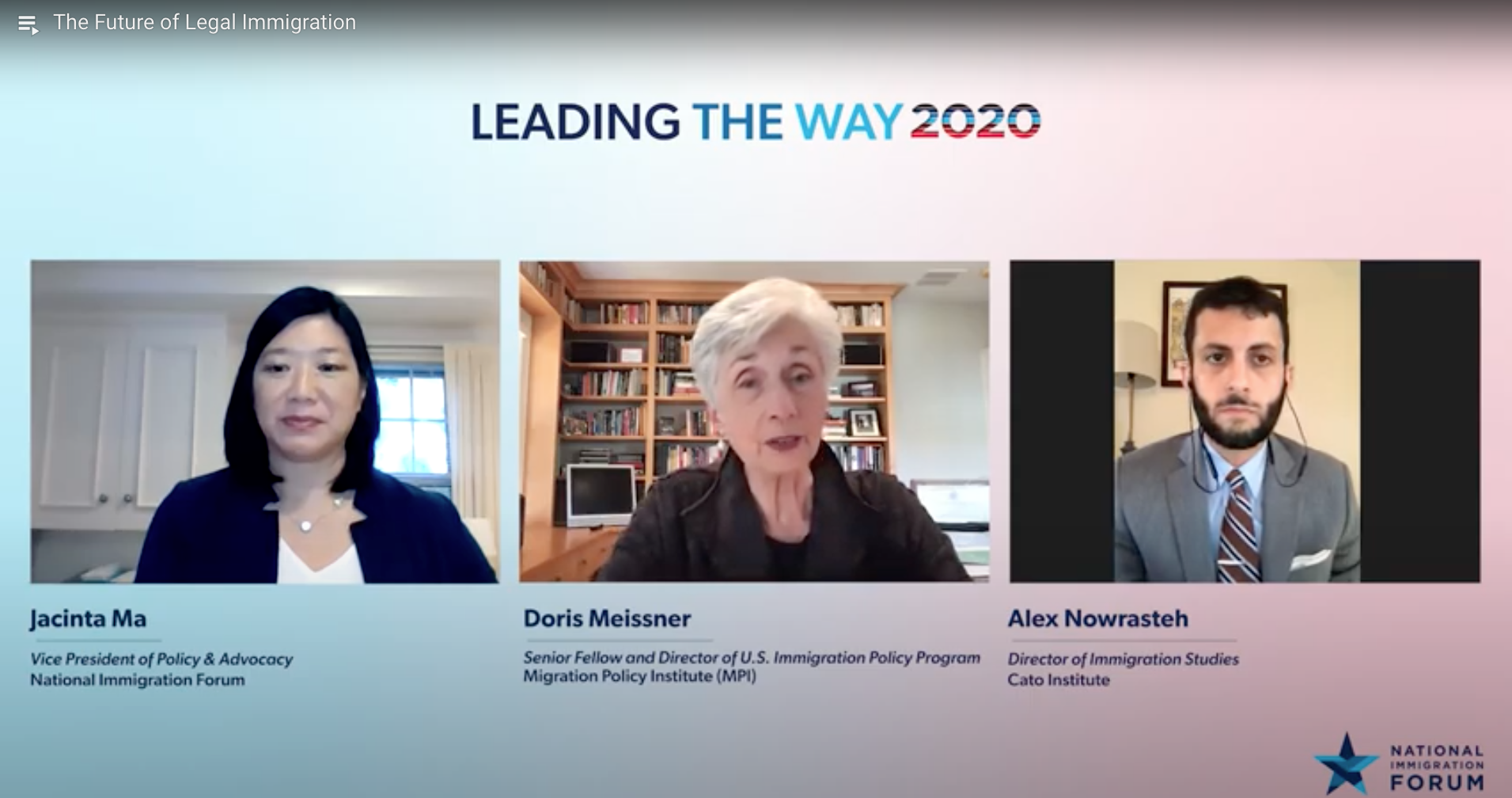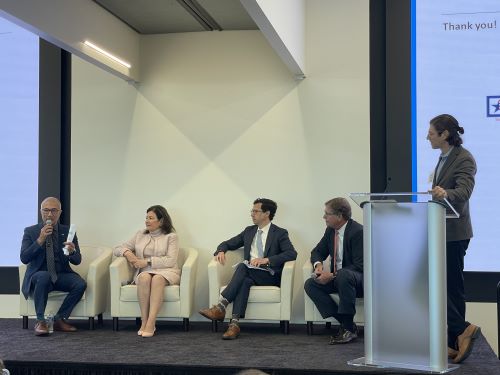Experts Discuss Future of Legal Immigration at NIF Leading the Way 2020
 Immigration experts discussed the impacts of having an outdated legal immigration system and recommend policies for the US to pursue during an online panel at the National Immigration Forum’s Leading the Way 2020.
Immigration experts discussed the impacts of having an outdated legal immigration system and recommend policies for the US to pursue during an online panel at the National Immigration Forum’s Leading the Way 2020.
A key point the speakers agreed on was that increasing and improving pathways of legal immigration would help decrease illegal immigration and improve immigration enforcement.
“So many concerns could be solved if we had a functional legal immigration system that was aligned with the economy and that was flexible and more up to date,” said Doris Meissner, Director of the US immigration Policy Program at the Migration Policy Institute. She also pointed out that the latest significant changes to the legal immigration system were made by Congress in 1965 and 1990.
“Reforming the legal immigration system is the key to reforming the rest of it…If we fixed the legal immigration to allow more people to come here lawfully as high-skill workers, mid-skill workers, low-skill workers, family-based, and refugees across the board, a lot of these other areas of immigration would fix themselves,” said Alex Nowrasteh, Director of Immigration Studies at the Cato Institute. He also argued that adequately increasing pathways of legal immigration, especially low-skill immigration, would help fix illegal immigration because most of the people who migrate illegally would do it legally if they had the option.
Meissner also spoke positively of the idea of merit-based immigration, although she said it should be focused on market demands rather than a points based system that favors highly skilled or formally educated immigrants.
“Merit-based in my opinion should have to do with market needs and where immigrants add value in terms of America prosperity. We’re at a time now where that is very important because we’re an aging country and we’re experiencing growth in the labor market and younger workers only from immigration…we need to think of immigration as a human resource and asset for the country, and important if we want to continue to grow,” she said.
Speakers also agreed that although limits are needed, Congress should avoid trying to set specific number caps for visas in statute because doing so turns it into a “political negotiation” rather than good reflection of what is needed in the labor market, and specific caps get outdated quickly. Rather, they suggested adopting ranges or standards for visas that adjust based on shifting US labor market demands.
One example Nowrasteh gave to highlight how outdated of our current system is that tech companies are still using visa caps and rules laid out in legislation from 1990, from before when the internet was publicly available.
Meissner also advocated for the implementation of what she calls “bridge" visas, which would create a method for immigrants to earn permanent legal status while working under temporary worker visas by maintaining a job for a number of years while working for competitive wages that do not put native workers on an uneven playing field. Nowrasteh added that employment visas should be adjusted to allow workers to transfer employers more easily so employers are less able to underpay or abuse workers.








